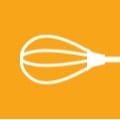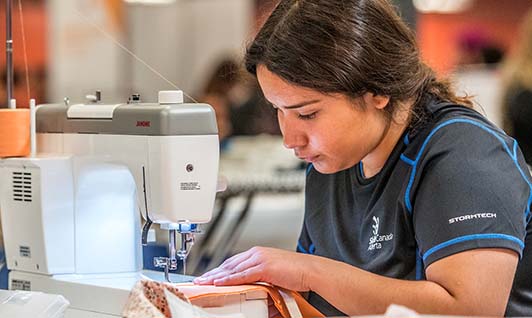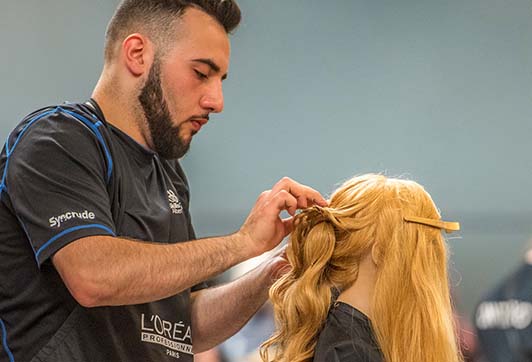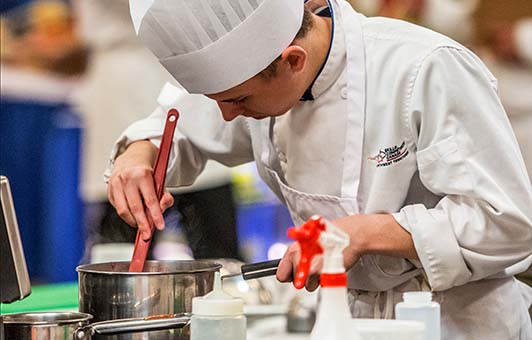Baking
What is baking?
A career in baking offers a variety of areas in which to specialize. Bakers are responsible for making breads, bagels, pretzels, cakes, muffins, cookies and pastries as well as chocolate and candy, sugar sculptures and icing. They can prepare many different baked goods or specialize in just one. Depending on their experience and training, they may hire, train and supervise other baking personnel, order and control supplies and stock, and price the various products as well.
Bakers are not only required to follow recipes, but in many instances to also create them. They first prepare the dough or batter by using tools and equipment such as cake rounds, pastry papers, and an assortment of cooking and mixing utensils, and then cook them at precise temperatures for a specific amount of time. They also make icing or frosting for the many desserts that need it, and then apply it with a piping bag in intricate designs.
Bakers perform some or all of the following duties:
- Prepare dough for pies, bread and rolls and sweet goods, and prepare batters for muffins, cookies, cakes, icings and frostings according to recipes or special customer orders
- Operate machinery
- Bake mixed doughs and batters
- Frost and decorate cakes or other baked goods
- Ensure quality of products meets established standards
- Draw up production schedule to determine type and quantity of goods to produce
- Purchase baking supplies
- May oversee sales and merchandising of baked goods
- May hire, train and supervise baking personnel and kitchen staff.
HOW TO JOIN THE FIELD
Completion of secondary school is usually required.
Completion of a three- or four-year apprenticeship program for bakers or Completion of a college or other program for bakers is usually required.
On-the-job training may be provided.
Trade certification is available, but voluntary, in Newfoundland and Labrador, Prince Edward Island, Nova Scotia, New Brunswick, Quebec, Ontario, Alberta, British Columbia, Nunavut, the Northwest Territories and the Yukon.
Interprovincial trade certification (Red Seal) is also available to qualified bakers
INDIGENOUS AND REMOTE CONSIDERATIONS
In many indigenous and remote communities’ commercial kitchens and restaurants are limited. While there may be a restaurant in town, it may be difficult to get an apprenticeship in this field without relocating to a larger centre. If the community has hotels, mining activity or tourism, there may be opportunities to get jobs with existing companies, however, in the absence of this, developing a baked goods catering business or bakery may be suitable.
Many Indigenous and remote communities have online Facebook pages where baked goods could be marketed and sold. **Please note it is important to get all the proper licensing and food safety certifications to run a business, even from your home.
DISABILITY CONSIDERATIONS
Baking can be a wonderful career for persons with disabilities. However, depending on the specific job and the disability in question, it can also be challenging. Baking can require standing for long periods of time, it can also require being in hot environments. There are safety considerations as well with proximity to high heat and fire.
Find the right career path for you with our interactive map!
Trouvez le cheminement de carrière qui vous convient grâce à notre carte interactive!
Sample Job Titles
- Chef
- Oven operator
- Pastry Chef
- Baker
Companies and Sectors
- Small retail bakeries
- Restaurants
- Supermarkets
- Catering services
- Wholesale bakeries
- Self-employed

Baking and the Skills for Success Program
The key Skills for Success for this career path are:
- Reading
- Creativity & Innovation
- Communication



